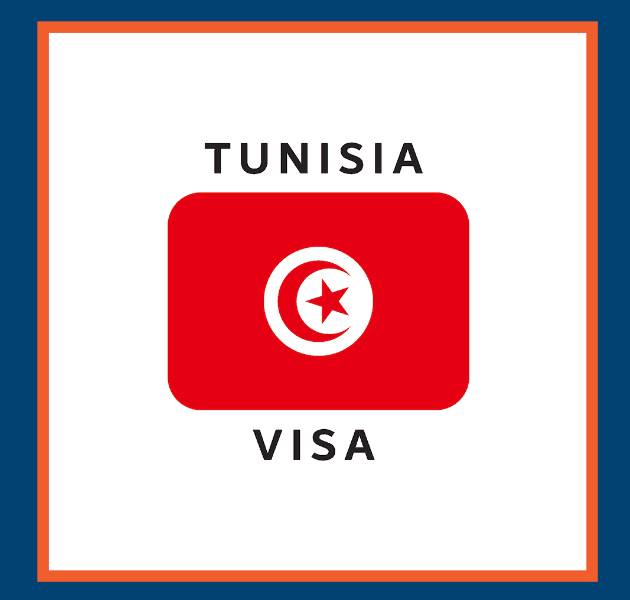As a globetrotter from the UK eyeing the historic allure of Tunisia, I’ve gathered vital Tunisia visa information to ensure a seamless journey. For UK citizens like me, planning a trip to the warm Mediterranean coastlines and ancient ruins of Tunisia comes with a big perk – a Tunisia visa for UK citizens isn’t necessary for short leisure or business trips lasting up to 90 days. This makes the UK to Tunisia travel visa requirement one less thing to worry about. However, if your wanderlust extends beyond a three-month sojourn, the visa application process beckons. Given local regulations and entry enforcement, it’s always prudent to stay informed and prepare accordingly for any Tunisian adventure.
Key Takeaways
- No visa is required for UK citizens staying in Tunisia for up to 90 days.
- Ensure a passport is valid for the duration of your stay in Tunisia.
- Visas are mandatory for UK citizens planning to stay longer than 90 days.
- Check with the Tunisian Embassy in London if in doubt about entry requirements.
- Be ready to present evidence of hotel reservations upon arrival in Tunisia.
- Dual British-Tunisian nationals should use their Tunisian passport when entering or leaving the country.
- Contact the British Embassy in Tunis if experiencing entry issues related to your nationality.
Understanding Tunisia Visa Requirements for UK Citizens
Before packing your bags for the enchanting landscapes of Tunisia, let’s discuss the country’s visa stipulations for UK travelers. Whether you’re visiting for the sun-kissed beaches, vibrant markets, or the remnants of ancient Carthage, knowing the entry prerequisites will ensure a stress-free travel experience.
General Entry Requirements for British Travelers
Upon landing in Tunisia, I stand ready to present my contact details and any travel information to the local authorities. It’s an essential part of the Tunisia visa application process, which contributes to a well-regulated entry system. An interesting note for fellow Britons – we must furnish evidence of hotel reservations or a detailed explanation of alternative lodging plans to gain entry into this North African nation.
Passport Validity and Personal Documentation
Ensuring my passport is valid for the entirety of my stay is a non-negotiable aspect of the Tunisia visa requirements. There’s no need for additional validity beyond my travel dates, but it’s crucial to check that my travel documents align with my airline’s requirements, avoiding any unpleasant surprises at the airport.
Dual Nationality Considerations
For those of us who share dual British-Tunisian nationality, it is important to remember to use the Tunisian passport when entering and leaving Tunisia. In my travel circle, a few individuals have found themselves in untoward situations when they neglected this rule. In some cases, British nationals, particularly with South Asian roots, have experienced border delays and even denial of entry. Should these issues arise, I know to reach out promptly to the Consular team at British Embassy Tunis for assistance.
| Requirement | Detail |
|---|---|
| Contact Information | Provide upon arrival in Tunisia |
| Hotel Reservation Evidence | Required for entry |
| Passport Validity | Must remain valid for the duration of the stay |
| Dual Nationality | Enter/exit Tunisia on Tunisian passport |
As a seasoned traveler, staying abreast of these regulations ensures that I relish my Tunisian sojourn without any bureaucratic hitches.
Visa-Exempt Travel: Exploring Tunisia Without a Visa
As a UK citizen with a penchant for Mediterranean cultures and North African landscapes, I always relish the opportunity to visit Tunisia, a country which thankfully falls under the tunisia visa exempt category for short trips. Not having to worry about the tunisia visa fees for UK citizens for stays up to 90 days is a convenience I appreciate deeply. It allows spontaneous travel plans without the bureaucratic hassle of a visa application.
That said, it’s still imperative to meet a few stipulations to ensure entry into Tunisia. I always make sure my passport is valid for at least six months upon arrival with one blank visa page, just to be on the safe side. Although Tunisia grants me access without a visa, I must still demonstrate financial stability for the duration of my visit and provide proof of my roundtrip airline tickets. The purpose of my visit should be clear, and all related documents kept handy.
To avoid any potential travel disruptions, I also make a point to check with my airline about their current boarding policies in relation to visa requirements. This diligence is essential as immigration policies are always in flux, and being prepared is part of being a responsible traveler.
- Passport validity for at least six months on entry
- One blank page in your passport for the entry stamp
- Evidence of sufficient funds for the stay
- Proof of outward and return journey
- Documents clarifying the purpose of the trip
Enthralled by the prospect of treading through the storied streets of Tunis and basking on the Mediterranean shores, my visa-exempt status makes these experiences all the more accessible — all the while saving me time and money by circumventing the need for visa payments. Yet, even with this visa exemption, each trip warrants careful pre-departure checks to ensure every box is ticked for a seamless journey to Tunisia’s shores.
Navigating the Tunisia Visa Application Process
When contemplating getting a visa for Tunisia from the UK, it’s essential to understand the nuances of the Tunisia visa application process. For those British citizens planning to immerse themselves in Tunisia’s rich culture for an extended period beyond the visa-exempt 90-day threshold, securing the right visa becomes a necessary step. Here’s a glance at how to deftly navigate through this procedure.
When to Apply for a Tunisia Visa
Time is of the essence when applying for a Tunisian visa from the UK. The ideal window to start this process is 1-2 months before your intended departure date. Although there’s room for flexibility thanks to expedited services potentially available through agencies like CIBTvisas, early action is recommended to ensure you have your visa well in advance of your travel schedule.
How to Secure a Visa for Extended Stays
For those who wish to bask in Tunisia’s splendor beyond the allotted 90 days without a visa, the steps for acquiring long-term entry permissions are precise and must be adhered to rigorously. The journey begins by reaching out to the Tunisian Embassy in London, which is your gateway to obtaining a comprehensive guide on the visa application. For expediency, services from visa agencies like CIBTvisas can also be sought to streamline this process.
Required Documentation for Visa Application
The drill for the documentation is straightforward but demands attention to detail. The starting point is my original UK passport, which I curate meticulously for this purpose. Here’s a rundown of what I’ll need:
- A passport with at least two blank pages and six months of remaining validity upon my planned exit from Tunisia.
- Proof that my financial reservoir is adequate for the stay — a cornerstone for any trip abroad.
- Confirmed roundtrip airline tickets that stand as a testament to my travel intent and planned return.
- Convincing evidence of the purpose of my visit, be it business dealings, leisure activities, or an introduction to Tunisian history.
- Essential documents for my next destination after Tunisia, if any.
Additionally, a conversation with my airline is not to be overlooked, confirming their boarding policies in relation to my visa status to preempt any travel day surprises.
With these guidelines etched in my travel planner, I stand ready to tackle the visa application with confidence, ensuring that bureaucratic hurdles won’t deter my extended rendezvous with Tunisia’s enchanting lands.
What You Need To Know About Tunisia Visa Fees for UK Citizens
Embarking on a journey to Tunisia from the UK involves understanding the cost implications associated with the Tunisia visa application process. While I revel in the rich history and stunning landscapes of Tunisia without the need for a visa for short stays, acquiring one for longer trips dictates a closer look at the financial aspects required for the application. Below, I’ll delve into the essential fee-related information to guide fellow travellers through a hurdle-free visa procurement journey.
Cost Involved in Obtaining a Visa
When planning an extended stay in Tunisia, one of the first aspects I check is the Tunisia visa fees for UK citizens. The fees can fluctuate depending on the nature of the visa and the urgency with which the application is processed. The Tunisian Embassy in London is the authoritative source for the latest fee structure for various visa types, ensuring that I allocate the necessary funds for my visa application well in advance.
Payment Methods and Handling Fees
The methods of payment accepted by the Tunisian Embassy are specific, and knowing these beforehand saves me time and prevents last-minute inconveniences. The embassy accepts payments either in cash or via a postal order made payable to their office. I always confirm the exact amount before submitting my application, to include any potential handling fees that may apply.
My experience with the submission of visa applications has taught me the importance of following the embassy’s protocols to the letter. Applications can be lodged by post or in person, and an online appointment coupled with a personal interview is currently a prerequisite. This twofold approach demonstrates my commitment to comply with the tunisia visa application process and enhances the likelihood of a smooth transition through the complexities of international travel requirements.
Do UK Citizens Need a Tunisia Visa for Short Stays?
When I plan my trips, staying informed on entry requirements remains a top priority. Regarding trips to Tunisia, it is gratifying to note that for short stays up to 90 days, UK citizens, including myself, do not need a tunisia visa for short stays. This visa exemption is hugely beneficial as it simplifies the travel preparation process and allows for more flexibility with spontaneous travel plans. As a frequent traveler from the UK, such convenience makes Tunisia an even more attractive destination for a quick escape or short business trip.
However, ensuring a trouble-free entry into Tunisia involves more than packing a suitcase. It’s essential to verify that my passport has at least six months of validity upon my intended entry into Tunisia, reflecting a common international travel requirement. While this may seem like a minor checkpoint, it remains a critical factor that the Tunisian authorities may inspect closely. As such, I always keep my travel documents up-to-date and in line with uk to tunisia travel visa protocols to sidestep any potential hiccups on arrival.
In addition to ensuring my passport’s validity, I take responsibility for confirming with my airline that boarding will be permitted without a visa. This step is imperative as airline policies may vary, and some could require additional documentation despite visa-exempt status. Preventative checks with the carrier preclude any unexpected airport puzzles and underscore a well-planned journey.
- Check passport for at least six months’ validity
- Carry all necessary travel documents and proof of hotel reservations or accommodation
- Consult with your airline to confirm visa-free boarding policies
Maintaining these travel best practices ensures that I, along with my fellow compatriots, can look forward to an enjoyable and hassle-free journey when charting a course for the historical and cultural wonders of Tunisia.
Special Entry Considerations: Health, Safety, and Security
Preparing for my trip to Tunisia, I focus on gathering all Tunisia visa information, and keeping track of the health and safety guidelines to ensure a pleasurable experience. Let’s delve into what you need to know regarding health in Tunisia, safety in Tunisia, and local customs that could impact your travel.
Covid-19 Measures and Health Requirements
When planning my journey, I stay updated on the current Covid-19 precautions for travelers in Tunisia. Although there are no mandatory vaccinations required for entry, I opt for safe travel practice by keeping my Typhoid and Hepatitis A vaccinations up to date. As advised, polio and tetanus immunizations are also on my pre-travel checklist.
Ensuring Safety and Understanding Local Customs
Safety in Tunisia is also a significant consideration. I ensure that my UK Emergency Travel Documents are valid for hassle-free entry and exit. In case of lost or stolen passports, I’m aware of the need to present a police report to immigration officials. Moreover, as a female traveler, I plan to dress respectfully in accordance with Tunisia’s Islamic customs, particularly in tourist-heavy areas and the capital city of Tunis.
| Precautionary Measure | Importance |
|---|---|
| Covid-19 Updates | Stay informed on latest travel advisories and safety protocols in Tunisia |
| Vaccinations | Recommended Typhoid and Hepatitis A; advisable polio and tetanus |
| UK Emergency Travel Documents | Accepted in Tunisia for entry and exit; a contingency for lost or stolen passports |
| Local Customs | Modest attire for female travelers to respect Islamic practices |
| Police Report | Necessary for ETD issuance in case of passport theft or loss |
Keeping these precautions in mind helps me ensure that my travel plans go uninterrupted, allowing me to fully immerse myself in the rich culture and scenic beauty of Tunisia. It’s not just about travel readiness but also about cultural sensitivity and safety preparedness.
Conclusion
Wrapping up my musings on the journey to Tunisia, my findings have crystallized into insightful guidelines. For my fellow UK travelers, I unravel the fabric of the tunisia visa application process, emphasizing that for stays up to 90 days, the welcoming arms of Tunisia are open without a visa. This exemption not only saves time but also alleviates the financial aspect of international travel. However, should the wanderlust beckon for a stay extending this grace period, getting a visa for Tunisia from the UK becomes an absolute must. The key to an enriched travel experience lies in meticulous planning and awareness of current requirements.
Additional Resources and Consular Support
In the odd event that there’s a hiccup in this process, rest assured that resources and support are in place to aid you. The British Embassy in Tunis stands ready to offer consular support, ensuring peace of mind. Whether it’s a concern over entry delays or queries on visa applications, the professionals at the embassy are there to assist. Their guidance is particularly reassuring when it comes to understanding nuanced entry requirements related to our nationality or any special considerations on the ground in Tunisia.
Preparing for a Hassle-Free Journey to Tunisia
Before setting foot on Tunisian soil for my next outing, I’ll ensure that all my papers are in impeccable order—a practice I’d recommend to all UK citizens. A valid passport, proof of sufficient funds, and a firm understanding of the health and safety guidelines in Tunisia are part of the essential toolkit. Ensuring one’s travel documents align with airline and Tunisian requirements promotes a journey free from border-crossing concerns. By keeping abreast of the evolving entry regulations and respecting Tunisia’s captivating culture, I’m on the path to a most delightful and enriching Tunisian escapade. Indeed, the seamless intersection between thorough preparation and cultural appreciation is the linchpin of any successful voyage.







